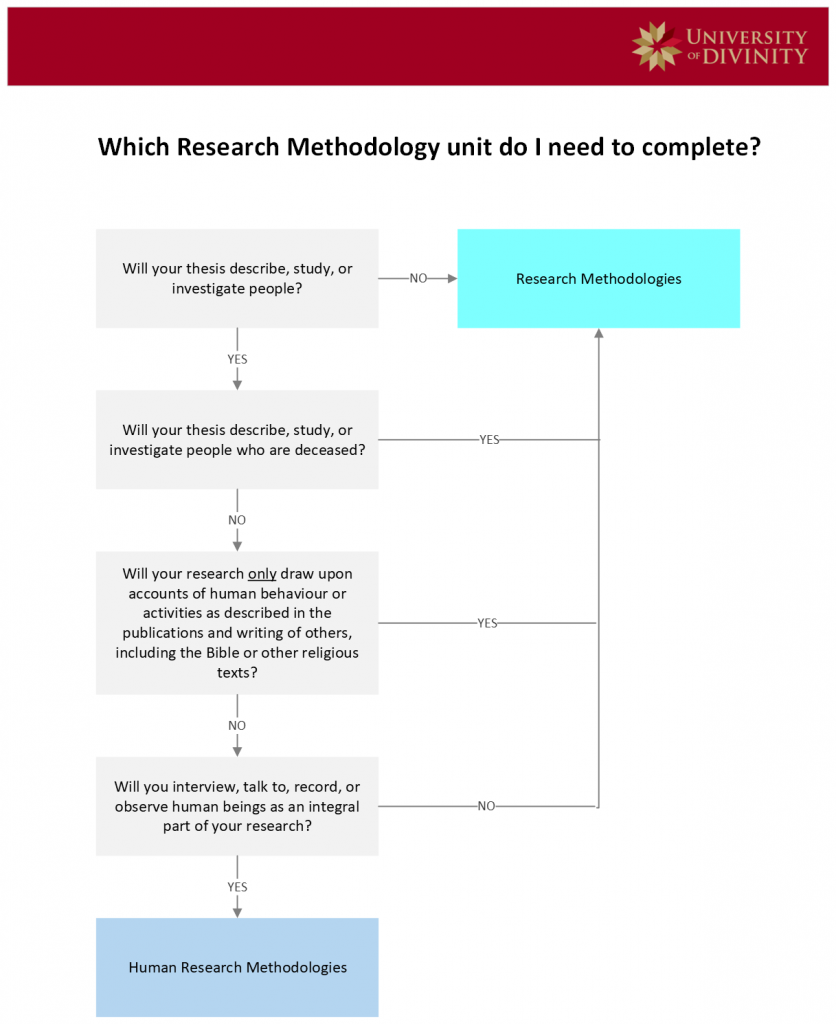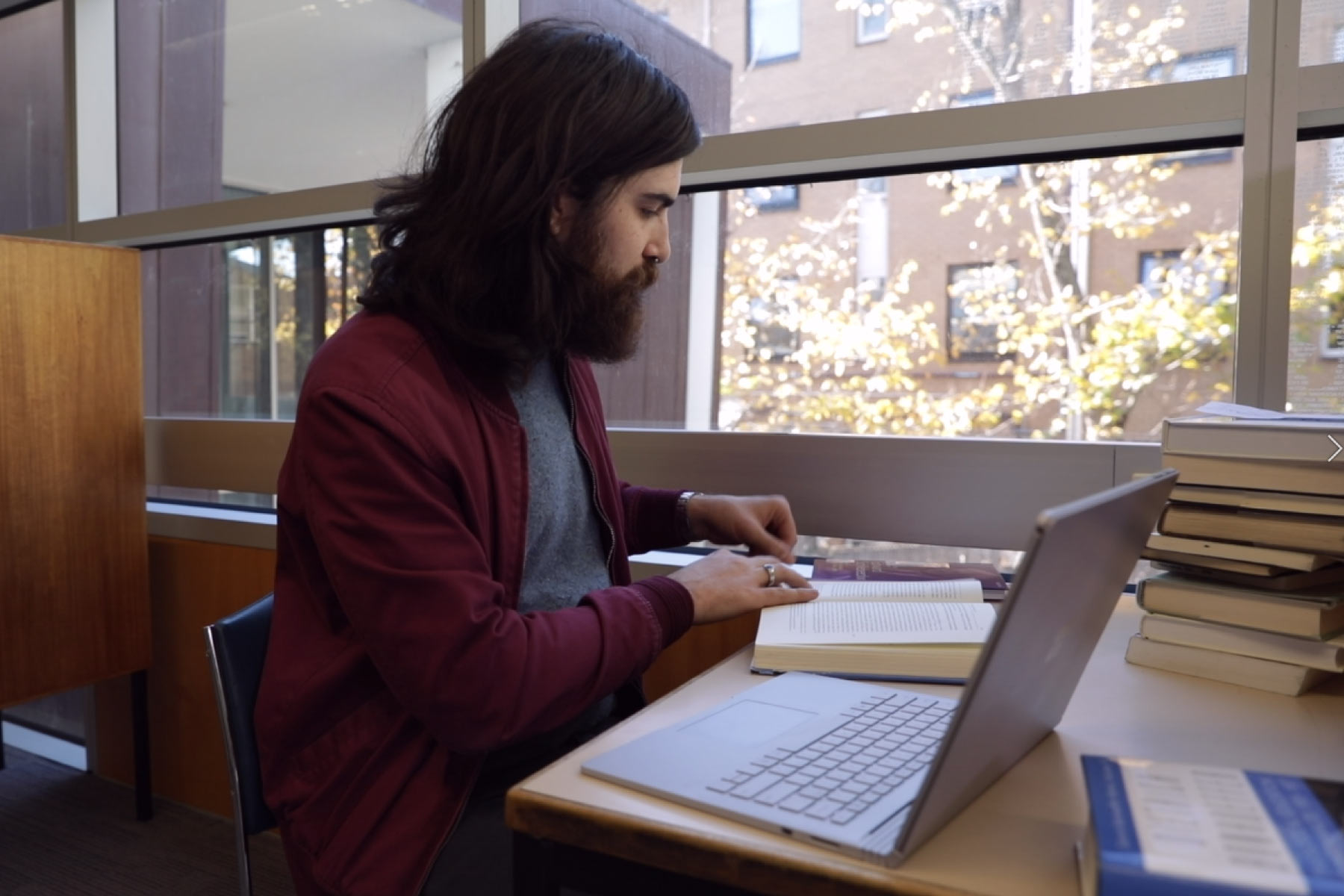To get the most out of the Minor Thesis (MT) experience you should be preparing well in advance, and it is recommended that you speak to the Academic Dean or Research Coordinator in your home College at least one semester ahead of time to make sure you have planned for this in your schedule.
What should I do to prepare?
Completing a unit in research methodologies is essential preparation for the MT. Anyone enrolling in a postgraduate award from the 2021 onwards will have to complete research methodologies prior to commencing their thesis (you can’t enrol concurrently).
Which Research Methodologies unit do I need to do?
The University offers two different sorts of research methodologies units. One is designed for anyone who plans to do research involving human subjects (human-based research), while the other unit is designed for all other types of research preparation.
The following flow chart will help you decide which type of unit is best for you.

Download a PDF copy of this flowchart.
Completing Research Methodologies will have helped you to decide on your research area and question, as well as the way you might go about answering your question (your methodology).
In the semester prior to enrolling in the MT, speak to a potential supervisor. A supervisor should have the expertise in your subject area. They might be from your own College, or from another College. A supervisor is a key person in the Minor Thesis experience. They will give you guidance and feedback, and help you to develop your research skills. Talk to College academic staff in the semester before you are due to commence. This gives you and the supervisor time to prepare for the semester ahead.
Think about your area of research, research topic and research question. This is important. By week 3 of semester, you are required to submit a Minor Thesis Approval form.
On that form you need to provide:
- The topic
- The question
- An outline of your methodology
- An indicative bibliography
- An outline of the structure of the proposed thesis.
Refer to the glossary of terms available on the website.
Glossary of terms related to Higher Degrees by Research
All this takes time, so the more reading, thinking, and preparation you do before semester starts the better. Ideally, you should be almost ready to fill in the approval form before semester starts.
You might like to learn how to use a bibliographic manager such as Zotero to help you manage your referencing.
What can I expect during the MT?
This is likely to be the first time you will do such a lengthy piece of writing and may even be the first time you have set your own topic. The MT will stretch you academically and give you an idea of whether you are suited for a Higher Degree by Research.
You will need to be self-directed in your learning. You will meet with your supervisor regularly (on average about six times over the course of your enrolment) and your supervisor will read your work and give you feedback, but much of the time you will be working on your project on your own. Set aside time for reading, writing, thinking and revision.
Expect to have your preconceived ideas challenged. Good research does not know the answers at the beginning of the project but is a genuine and open search for an answer to question.
Expect to revise and edit your work. No one writes the perfect thesis first time through. Leave plenty of time to get feedback from your supervisor, to think through that feedback, and to make any changes.
Can I do human-based research?
Yes—but you must enrol in the MT over two semesters.
To do human-based research you must get approval from the Human Research Ethic Committee (HREC). This means that the approval process will be longer than a thesis which does not require ethics approval. If you are interested in further human-based research for a higher degree, it is good to do this kind of work in the MT.
Who can I go to for advice?
At your College:
- Research Coordinator
- Postgraduate Coordinator
- Academic Dean
At the School of Graduate Research:
- Registrar
- Dean
